Hey, D&D powergamers: I promise you'll have more fun if you don't min-max in Baldur's Gate 3
For this one, let's all spend less time checking our maths and more time enjoying the adventure.
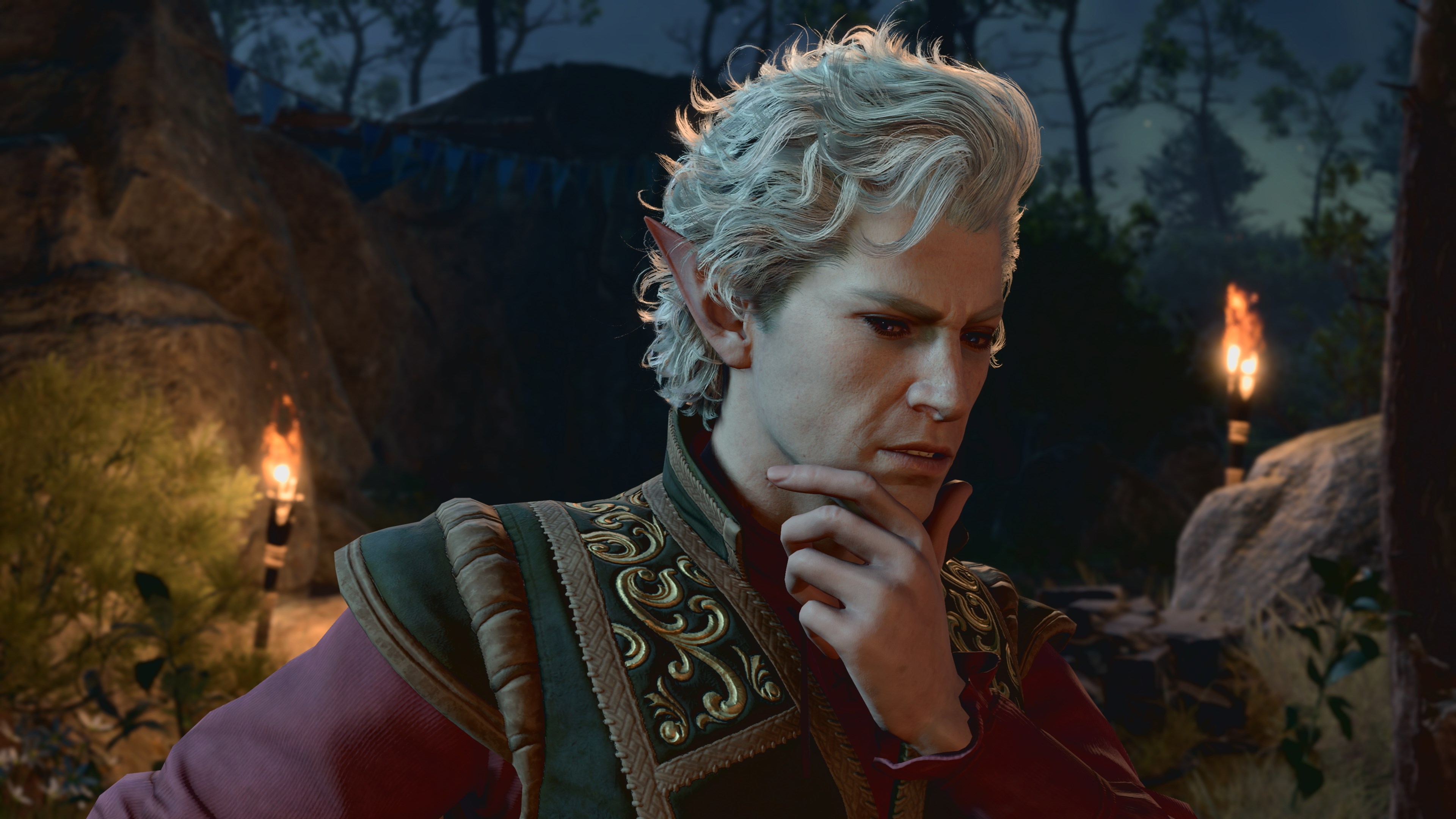
My Neverwinter Nights 2 character was unstoppable, and it was no accident. I plotted out my hero's build down to every attribute increase and feat, consulting exhaustive guides to the best class combinations, prestige class abilities, spells, and more. As my Sorcerer/Paladin/Divine Champion/Red Dragon Disciple reached the final war in the afterlife in the epic level Mask of the Betrayer expansion, and struck down a dark god entwined with his own soul in a couple of quick Smites from his crafted sword of ludicrous elemental damage, you know what I felt?
Empty.
There's something about D&D videogames in particular that drives that urge to min-max, to pursue the perfect build. I can already see you all gearing up to do it in Baldur's Gate 3, and I get it. With a couple of weeks left til launch, what else is there to do but pore over skills and feats? But I'm telling you now: you'll have way more fun in Baldur's Gate 3 if you don't min-max your character. Let me tell you why.
Difficulty
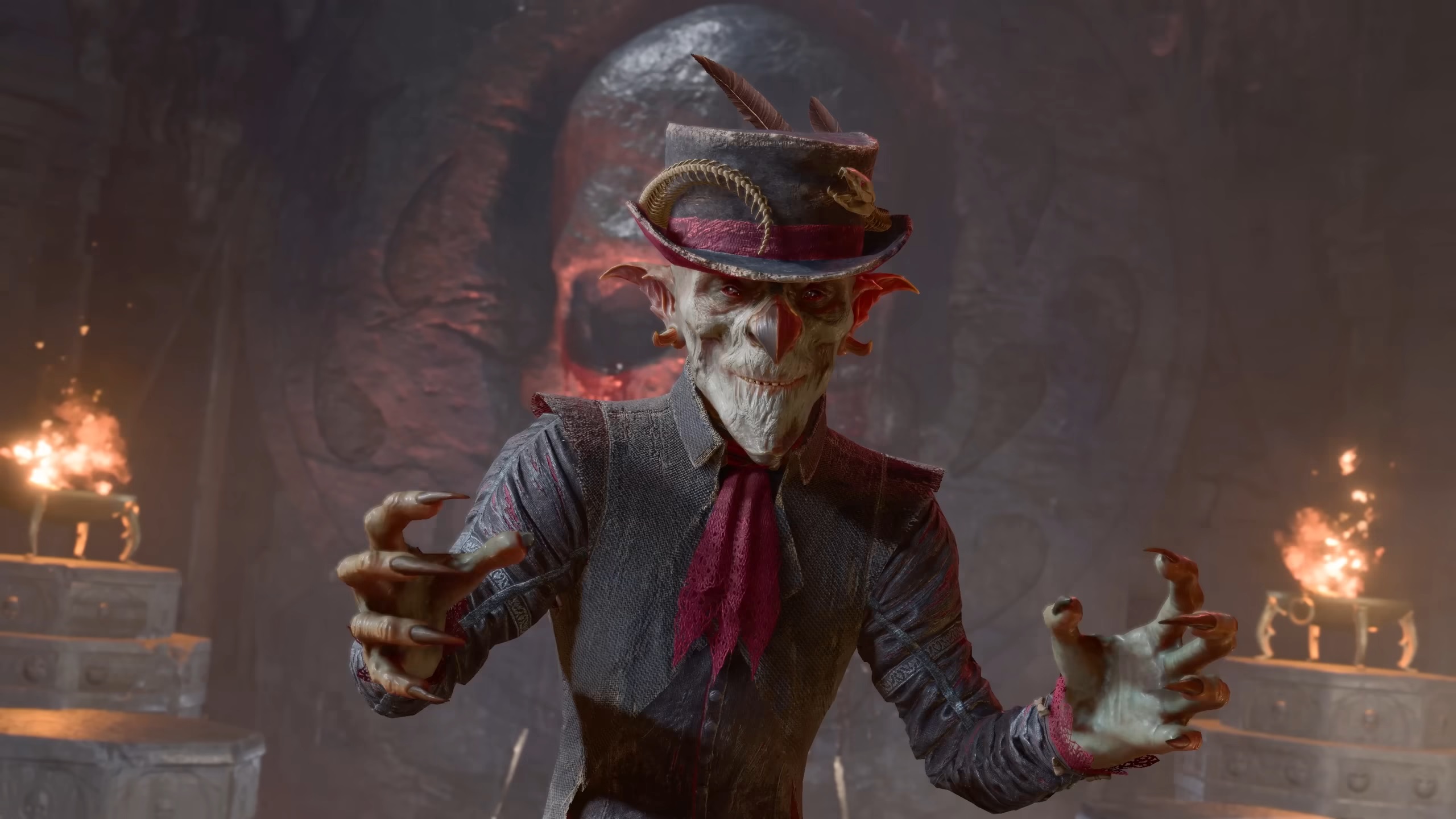
Min-maxed D&D builds are all about the end goal—the level, usually very late on, where everything suddenly clicks. They often turn a whole game into a journey towards one perfect moment, choosing seemingly nonsensical class levels and abilities along the way as you pursue the point, perhaps tens of hours or more into the game, where the numbers align and the feats combo together and you become unstoppable.
You end up inverting the game's difficulty curve. The early levels, during what's meant to be the game's gentle introduction to the mechanics followed by opportunities to spread your wings and try out new powers, become an awkward fumble of trying to limp through with strange choices that won't pay off till later. All your points are in Charisma because you'll use it for all your attack rolls once you hit level 6, but right now with no Strength you can barely swing a sword; that level in Sorcerer that will be so useful later is currently only giving you a smidge of HP, a crap set of spells, and one level less of actually useful fighting ability.
After slogging through that mess, eventually, your build finally comes together… just in time to make the game's last third, where the developer wants you to experience dramatic new challenges that stretch your tactical skills and show off the power of your enemies, a complete joke. I can tell you from experience, killing a god in two swings doesn't make you feel powerful, it makes the god feel weak and pointless—and turns a grand finale into a limp anti-climax.
There's no need to make the easy stuff hard and the hard stuff easy—trust the developer enough to follow the difficulty curve they've laid out for you.
Keep up to date with the most important stories and the best deals, as picked by the PC Gamer team.
Narrative
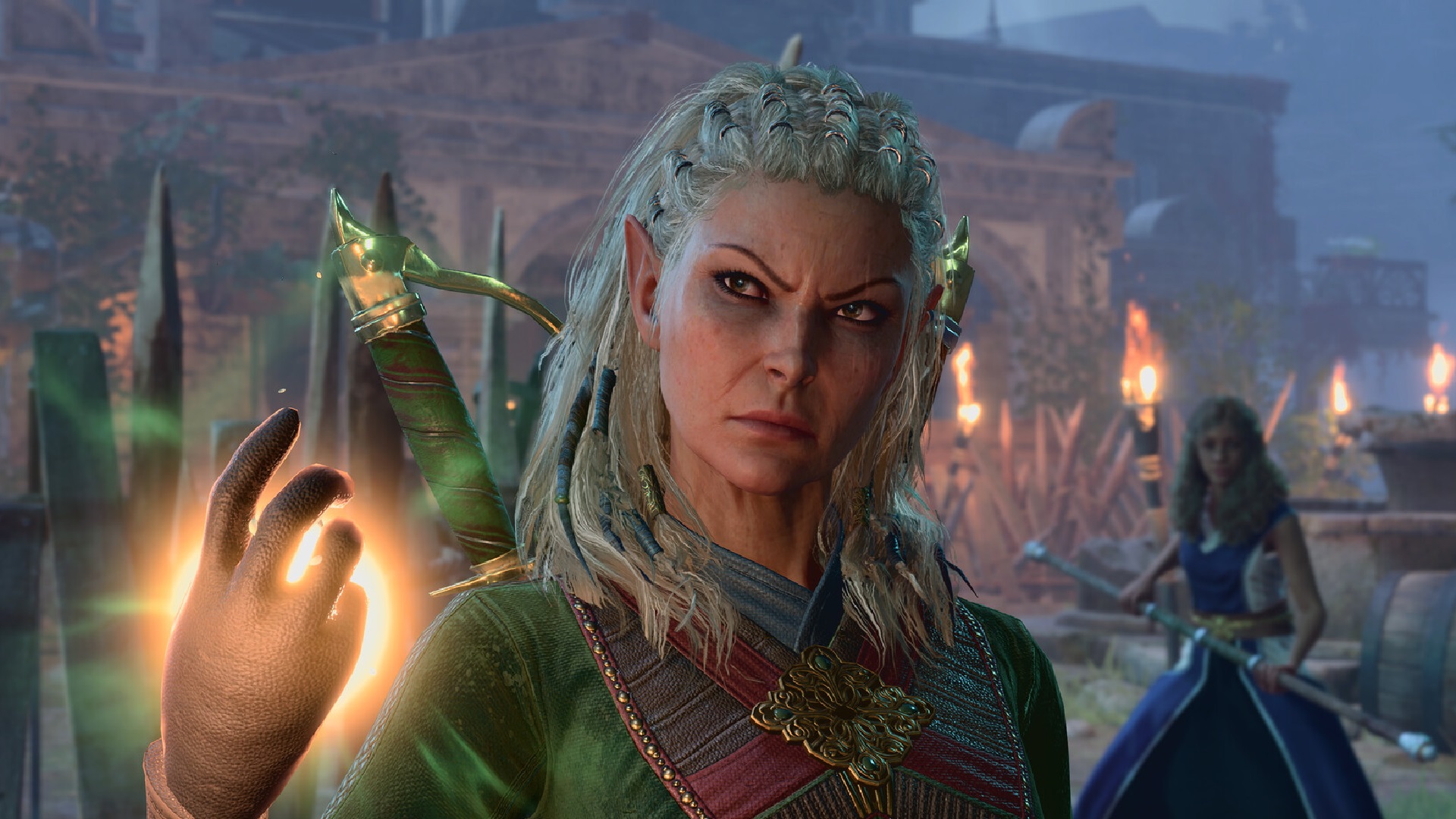
When you're making choices for your character for min-maxing reasons, you're not making choices for narrative reasons. Things that would add cool flavour or contribute to a more rounded personality are jettisoned in favour of powerful combos that have no story logic to them at all. Why did my Paladin manifest sorcerous powers early on in his career only to completely ignore them for the rest of his life? Did that add anything to the tapestry of his backstory? No, it just helped me fulfil the requirements for the Red Dragon Disciple prestige class, which also made no sense for him to have.
Purely mechanical choices like that can colour your whole playthrough. Larian's RPGs are so rich and engrossing when you really let yourself sink into them—you're not going to have that kind of investment if every aspect of your character is just a reminder that they're a bundle of numbers instead of a fantasy hero.
Making choices because they feel right for your character, and seeing where they take you; choosing abilities because they sound fun and interesting, not just powerful: that's where the fun is. Speak With Animals may not add any damage to your sword swings, but I'll take doing sidequests for squirrels over raw combat efficiency any day.
The rules have changed
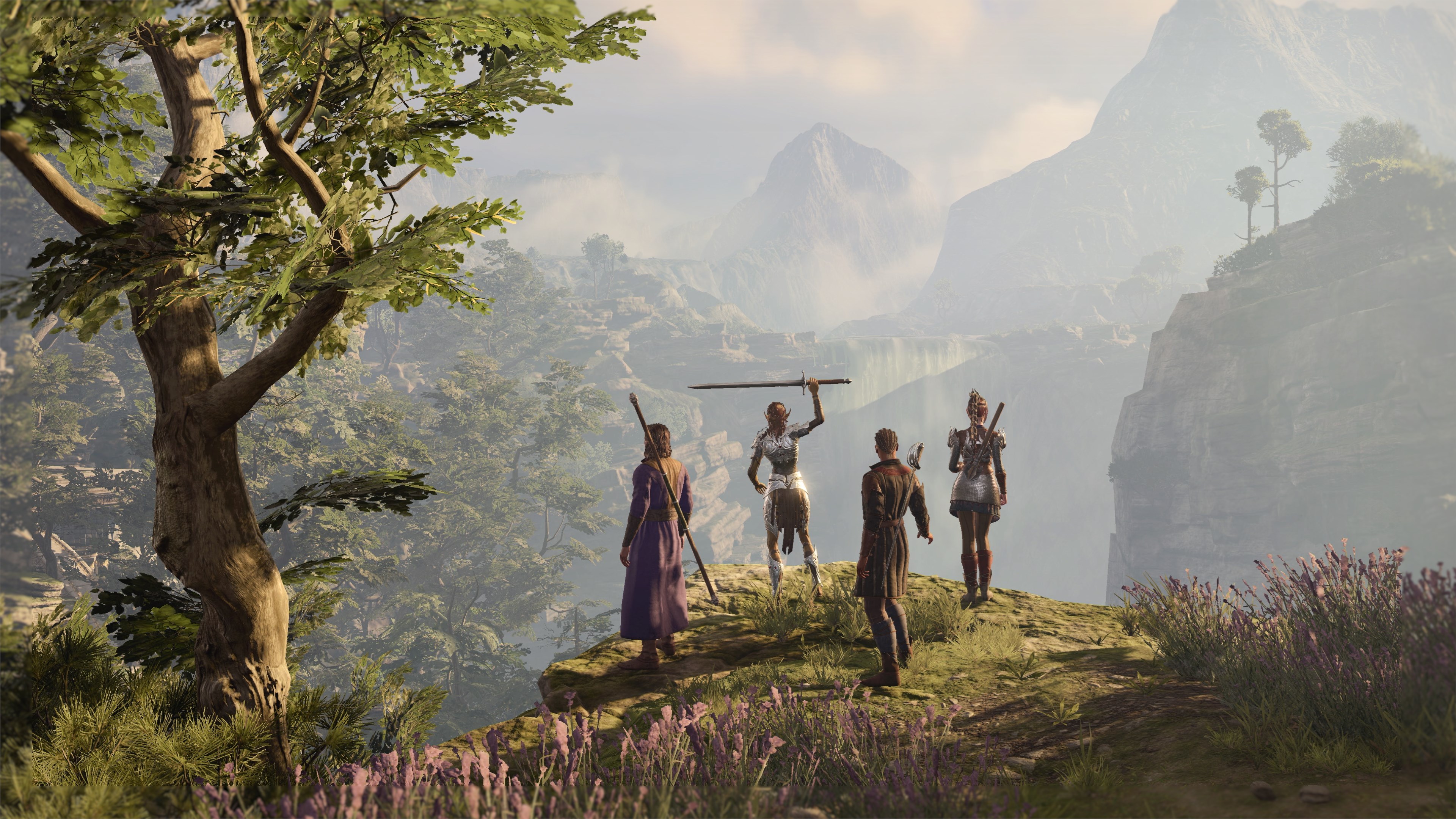
Part of what has always driven min-maxing in videogames based on D&D is the rules themselves. Particularly the 3rd edition/3.5 rules—used in Neverwinter Nights, Icewind Dale II, and to a degree Knights of the Old Republic—are full of character creation choices that are strictly worse than others, often directly penalising more thematic choices in ways that could take many levels to become tragically apparent. Most egregious were prestige classes, which offered cool and flavourful new archetypes to build into, but often had strict requirements that had to be kept in mind from level 1 to have any hope of reaching them. You may well have wanted to be a Red Wizard of Thay just because they look cool as hell, but if you wanted that fun narrative flavour, you had to math it out first.
But D&D has changed since then. Baldur's Gate 3 is based on the 5th edition rules—not yet seen in many games—which have substantially streamlined the whole process of building and levelling a character. With fewer mechanical choices, and less escalation of numbers (meaning characters don't have to sprint to keep up with rising attack bonuses and to-hit targets), there's much less potential to accidentally create a weak character. This means it's also much more forgiving of choices made for flavour instead of power—you won't feel a step behind if you want your Fighter to be an intelligent sort, or for your Wizard to wield a bow.
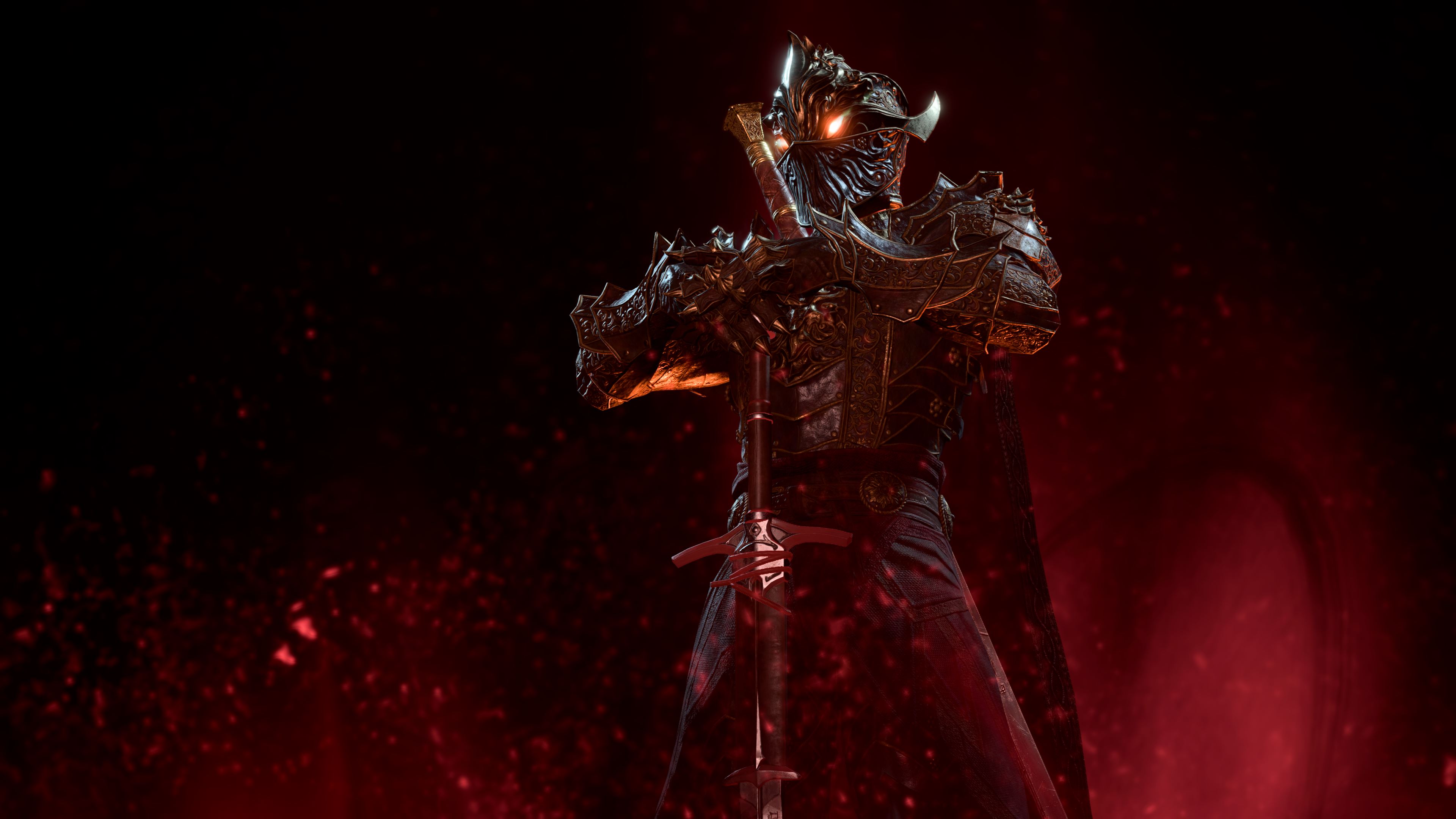
Prestige classes are gone entirely—all that cool flavour of specialising into a specific weird and wonderful archetype has been channelled instead into subclasses. These are simple choices each class gets to make, usually granting you fun extra powers from level 3 onwards, whether you want to be a druid who controls fungus or an invisible monk. All that fun weirdness is front and centre in this edition, so there's no need to consult a guide to figure out how to make something cool.
Even multiclassing has been deemphasised. It can still be a path to powerful combinations, but it's nowhere near as necessary as it was, and for the most part small 'dips' into other classes are no longer worth it. Sticking with one class through the whole game should be a perfectly viable way to play, and you'll still get plenty of cool toys to play with if you do.
It's time to let go of the game guides and Reddit threads, and just go with your heart when you get into that character creation screen in August. Let yourself spend longer choosing your half-orc's hairstyle than researching the most broken class combos, and you'll not only save yourself precious time that could be spent adventuring, you'll have a more enjoyable and memorable journey through Baldur's Gate 3.

Formerly the editor of PC Gamer magazine (and the dearly departed GamesMaster), Robin combines years of experience in games journalism with a lifelong love of PC gaming. First hypnotised by the light of the monitor as he muddled through Simon the Sorcerer on his uncle’s machine, he’s been a devotee ever since, devouring any RPG or strategy game to stumble into his path. Now he's channelling that devotion into filling this lovely website with features, news, reviews, and all of his hottest takes.

